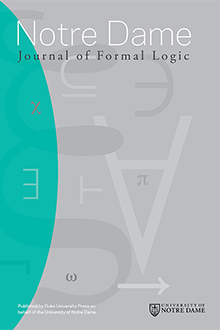Abstract
Can one quantify over absolutely everything? Absolutists answer positively, while relativists answer negatively. Here, I focus on the absolutism versus relativism debate in the framework of theories of truth, where relativism becomes a form of contextualism about truth predications. Contextualist theories of truth provide elegant and uniform solutions to the semantic paradoxes while preserving classical logic. However, they interpret harmless generalizations (such as “everything is self-identical”) in less than absolutely comprehensive domains, thus systematically misconstruing them. In this article, I show that contextualism is broadly compatible with absolute generality. More specifically, I develop a bipartite contextualist semantics, or “bicontextualism,” on which sentences are split in two groups: the unproblematic sentences, which are compatible with absolute generality, and the problematic ones, which are given a relativist semantics. I then argue that bicontextualism retains the advantages of (orthodox) contextualism and does not give rise to new revenge paradoxes.
Citation
Lorenzo Rossi. "Bicontextualism." Notre Dame J. Formal Logic 64 (1) 95 - 127, February 2023. https://doi.org/10.1215/00294527-2023-0004
Information





